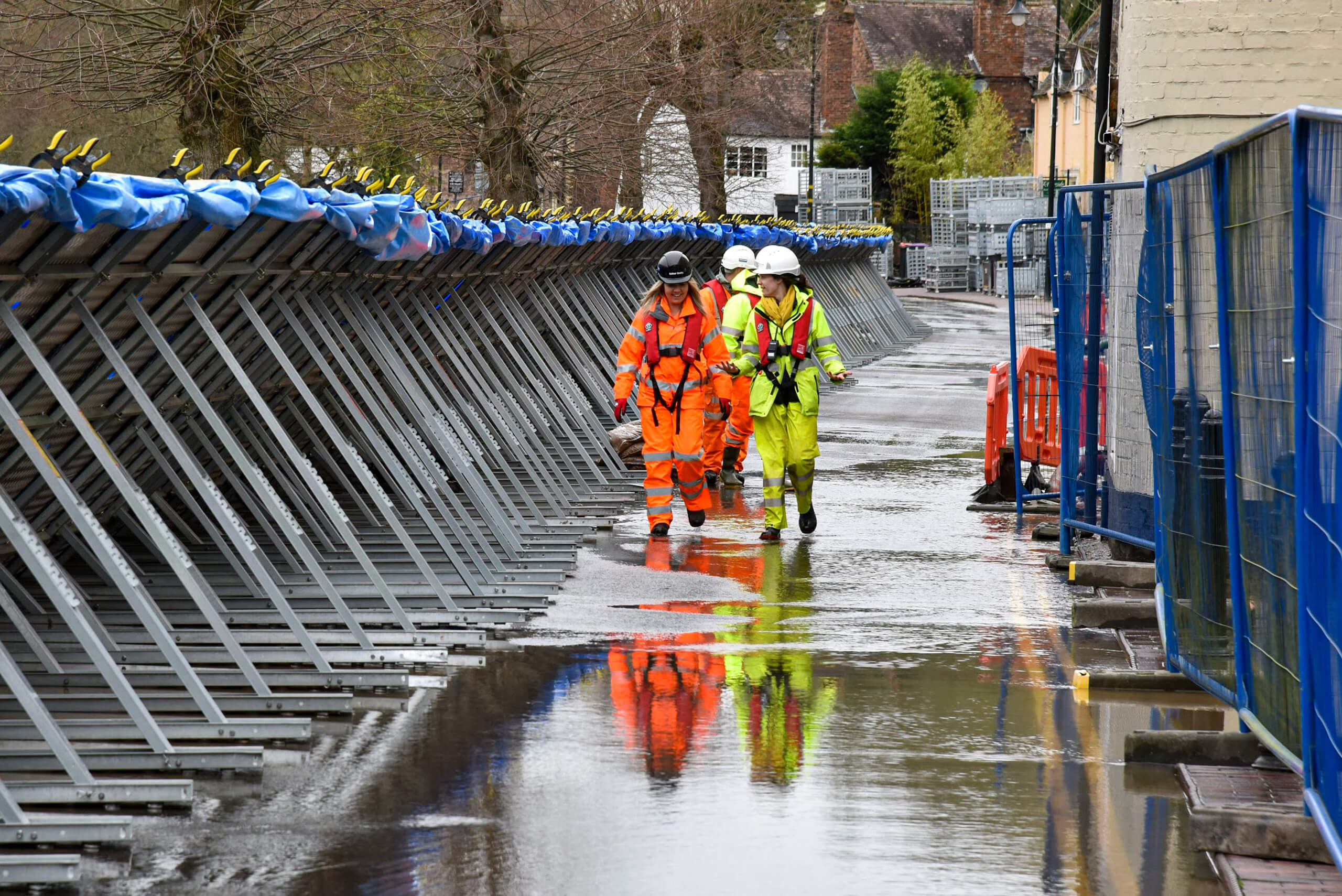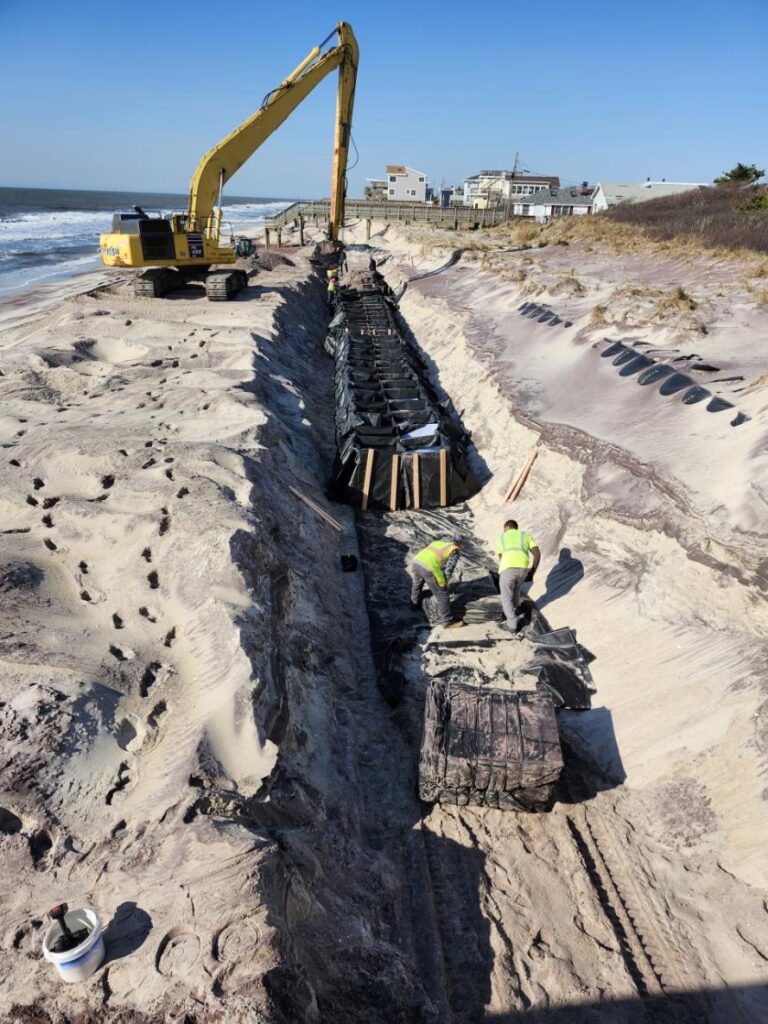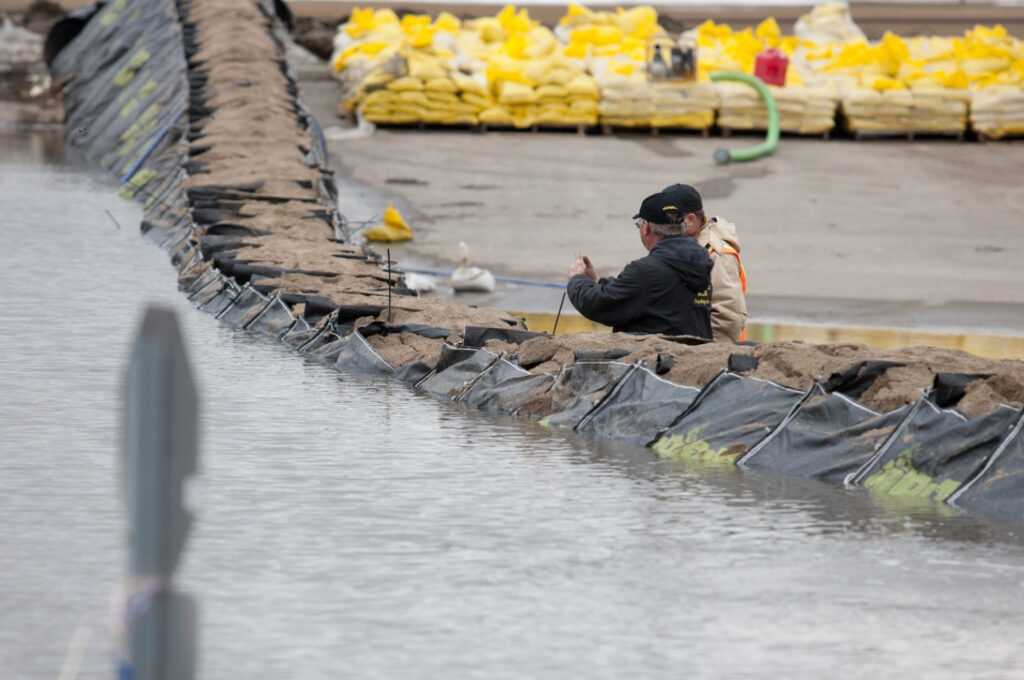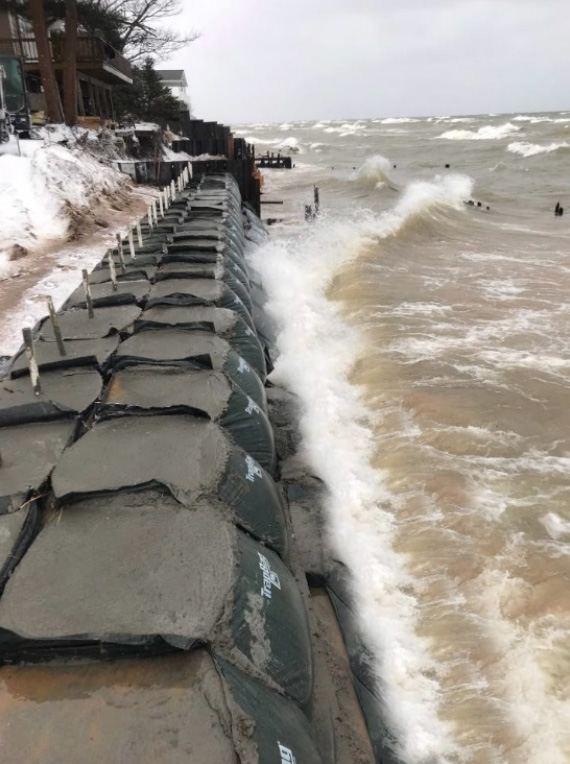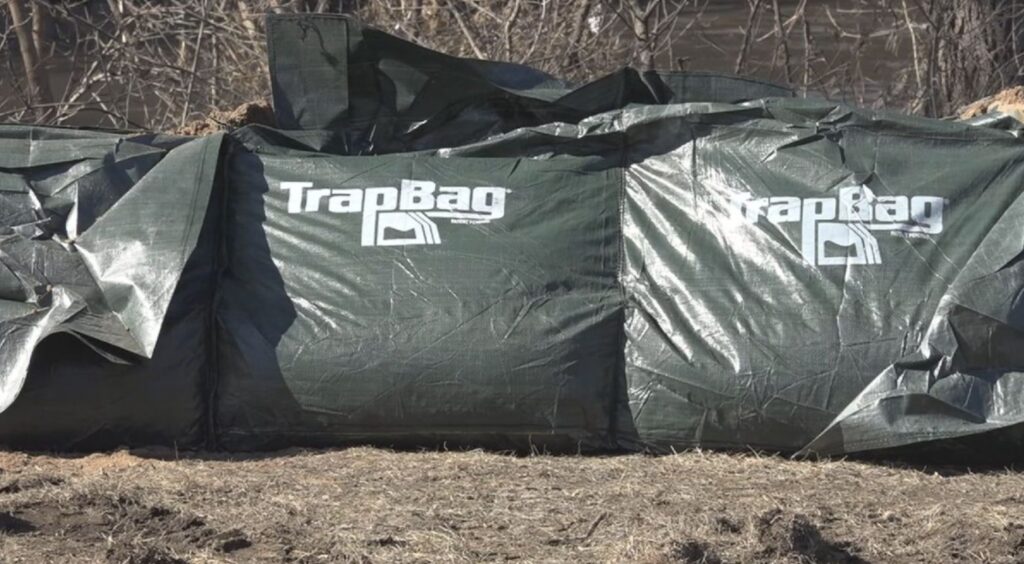TrapBag Solutions in Canada
Rapid-Deployment Flood Barriers
Engineered to withstand severe flood events, TrapBag® can be used faster and more effectively than traditional barriers. They help emergency responders protect homes and infrastructure for municipalities, First Nations, and Indigenous communities by deploying in a fraction of the time of traditional methods with the right equipment and crews.
Learn More »Erosion Control
Erosion barriers from TrapBag® are designed to preserve coastal areas and vulnerable riverbanks with ease. They protect homes and buildings on the waterfront from coastal erosion and prevent soil or beach loss that puts livelihoods at risk.
Learn More »Mudslide Diversion
When filled with concrete or other heavy materials, TrapBag® barriers can even divert devastating mudflows away from vulnerable communities and buildings. As a temporary landslide protection wall, these barriers can save property from severe damage and prevent loss of life.
Learn More »Projects
Who We Serve In Canada
TrapBag® is the chosen flood protection and detention barrier for dozens of industries and locales across Canada.
Emergency Management
Every second counts before the storm. That’s why emergency management crews trust TrapBag for fast, reliable flood protection. Barriers can be deployed in a matter of hours, while offering stronger defence than traditional sandbags.
Learn More »Construction & Infrastructure
TrapBag® is an effective detention system on construction sites because it’s just as good at keeping water in as it is at keeping water out. Your construction sites will always comply with local and provincial stormwater and runoff regulations with a detention pool or pond made of these barriers.
Learn More »Coastal & Civil Engineering
Coastal roadways, water treatment centres, and other infrastructure are vulnerable to damage during coastal flooding events. TrapBag® is a safe, cost-effective way to protect these structures from millions of dollars in damage.
Learn More »Environmental Protection
Canada’s salt marshes and seagrass meadows are at risk of washing away during severe storms or with sea-level rise. During severe weather events, TrapBag® barriers can protect these ecosystems from degradation. They have also been used to protect coastal areas from retreating by stabilizing sand dune cores from within.
Learn More »Marine Services
Marinas, ports, and offshore facilities throughout Canada need protection from floods and washouts. As stackable barriers, TrapBag® can withstand severe wave action and minimize the natural effects of coastal erosion.
Learn More »Mining & Petroleum
Companies operating in Alberta’s oil sands and other energy-producing regions need fast, reliable containment measures for runoff, spills, or tailings. TrapBag® is just as capable of containing liquids as it is at repelling them, and has been trusted by mining companies worldwide to minimize environmental impact and aid in cleanup efforts.
Learn More »What's At Stake?
Spring Flooding & Snowmelt
Across Canada, spring flooding is a recurring challenge that is only worsening with climate change. TrapBag® protects communities by holding back water while rivers and streams are above flood stage to prevent widespread damage.
Landslides in the Canadian Rockies
In the mountainous areas within British Columbia and Alberta, mudslides are becoming more common. One of the contributing factors includes increasingly severe wildfires, which in turn contribute to floods and higher slide risks.
While reforestation and climate action are long-term solutions that can prevent landslides or mudslides, TrapBag® can serve as a landslide protection wall that has the strength to divert flows away.
Coastal Erosion & Flooding
Canada has the longest coastline of any country in the world. However, communities and ecosystems along those coasts from St. John’s to Victoria are experiencing shoreline erosion. TrapBag® is designed to stabilize beaches and coasts by withstanding wave action, thus preventing shoreline retreat.
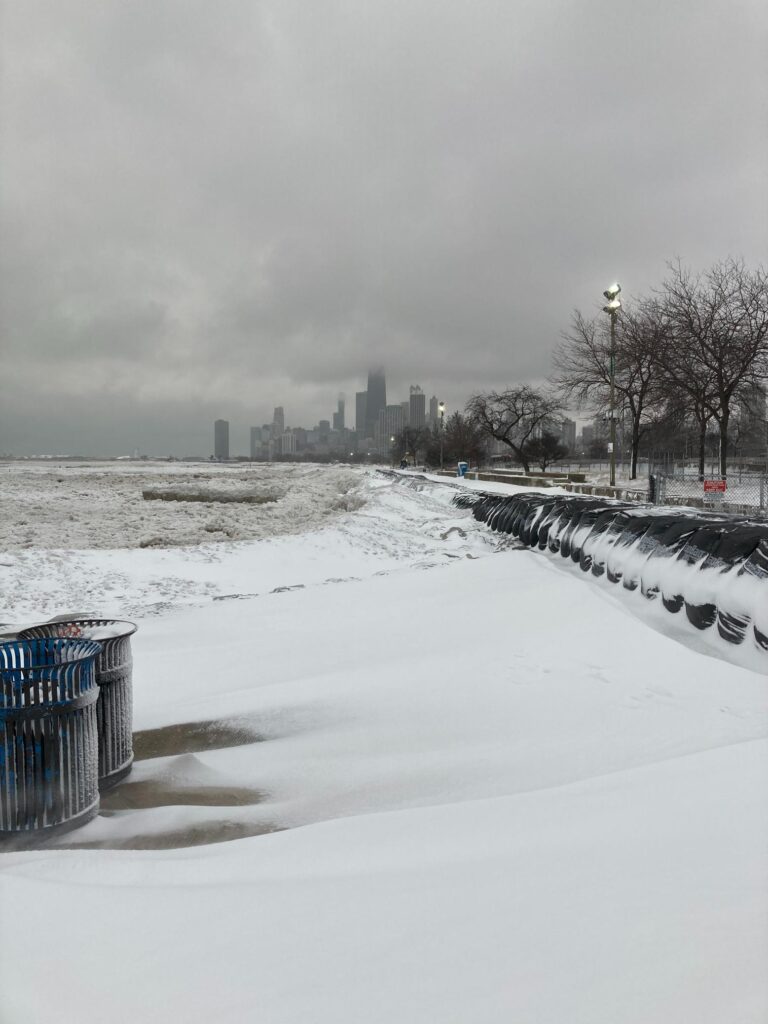
TrapBag Flood Prevention & Erosion Control Barriers
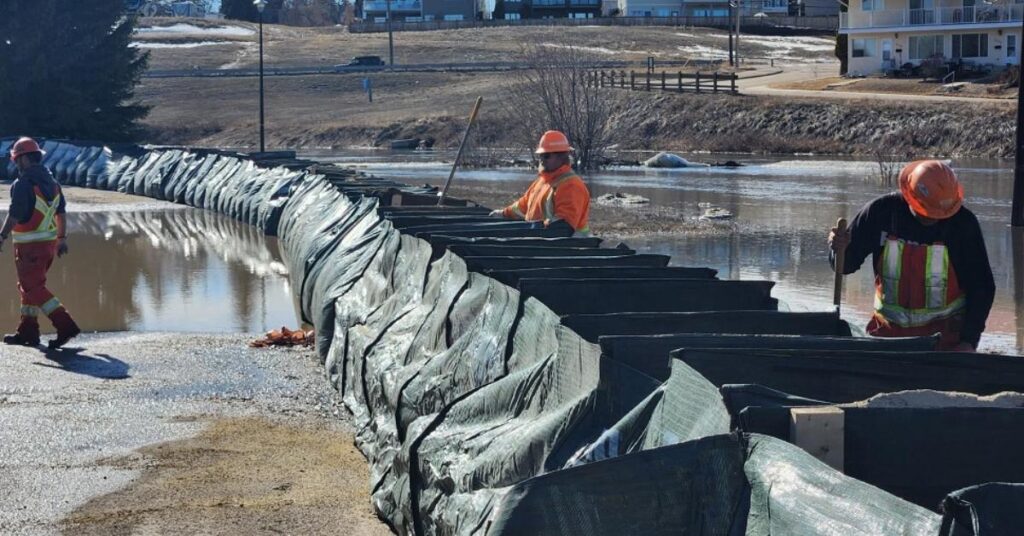
-

Reliable Strength
Because it’s built for strength that lasts, TrapBag® is designed to perform under pressure. It uses geotextile woven polypropylene to withstand harsh environmental conditions and can even strengthen when exposed to UV rays. When failure is not an option, these barriers deliver reliable strength that is trusted in crisis.
-

Efficient Design
Each cell in a TrapBag flood barrier is designed with a pentagonal shape that loads 60% of the barrier’s mass in its bottom half. This makes them easier to install and fill quickly during urgent jobs such as predicted landslides or flash floods.
-

Fast Deployment
With TrapBag, a small team consisting of just two individuals and someone operating a skid steer or small backhoe can complete a 100-foot (approximately 30-metre) barrier within a single hour. Compare this to the possible days it can take to fill and deploy sandbags for a barrier of a similar size when every second counts.
How TrapBag Compares to:
Sandbags have been a tried and true method of blocking flood waters for thousands of years. However, they’re labour-intensive and have a high margin of error that makes them give way relatively easily compared to improved systems like TrapBag®.
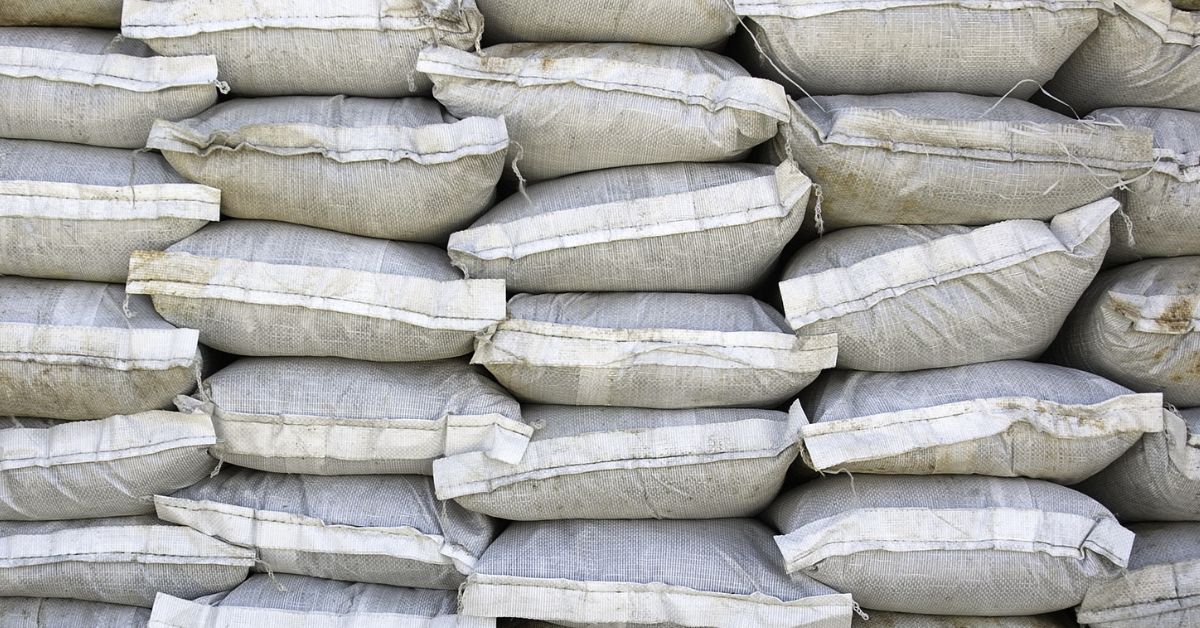
These barriers are designed to be filled with water and create enough weight and pressure to divert floodwaters from buildings and infrastructure. However, most water barriers aren’t more than a few feet tall and can’t stand up to wave action.
TrapBag barriers start at 1.2 meters tall and can be stacked on top of each other during major flooding events. Their solid fill design provides stability and resilience in the fact of wave action and rapids.
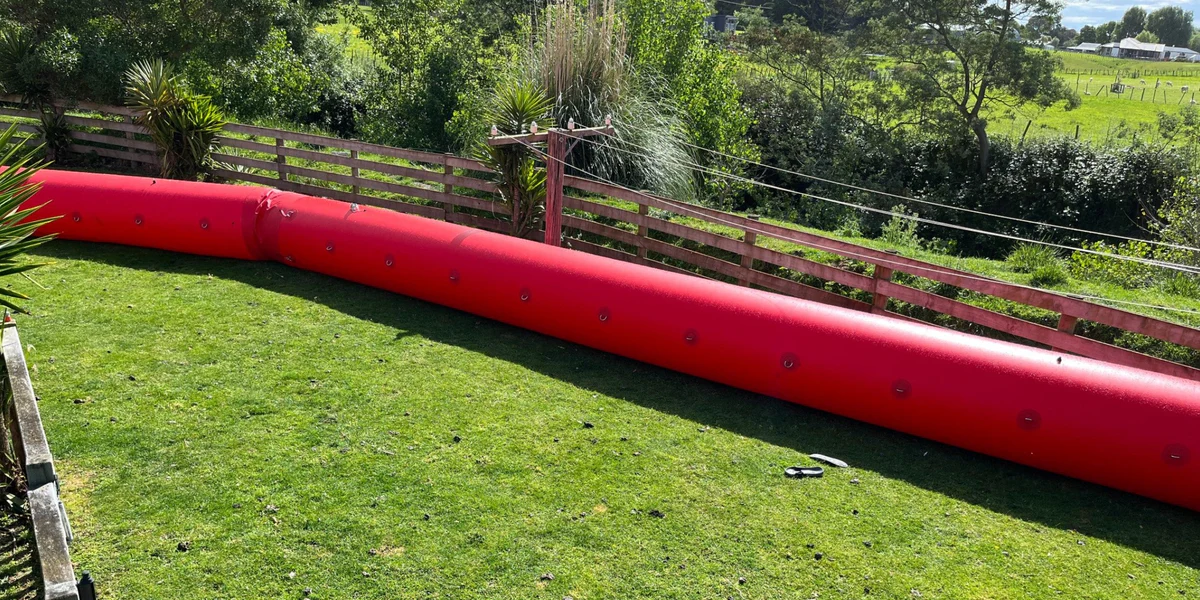
Flood walls and floodgates are frequently used in low-lying or flood-prone areas across Canada to protect at-risk locations from flood damage. While many are permanent, others are temporary and deployed for short-term emergencies. However, they can also be costly and challenging to implement in a timely manner.
TrapBag® offers a more affordable, flexible alternative for temporary or permanent flood protection.
